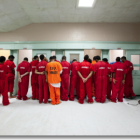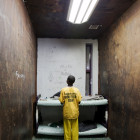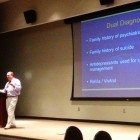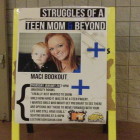
Felony Charges Dropped Against Young Undocumented Student at Heart of Immigration Debate
|
A nearly three-year legal battle has come to an end for a young undocumented immigrant whose 2010 arrest sparked a national debate over U.S. immigration policy, particularly the right of undocumented immigrants to attend public universities. Thursday, a Cobb County, Georgia, judge dismissed a false-swearing charge against the now 23-year-old Jessica Colotl stemming from her arrest on March 29, 2010. A Kennesaw State University (KSU) police officer stopped Colotl, a KSU student, for a traffic infraction on campus. She was arrested the following day after failing to produce for authorities a valid driver’s license. Colotl’s case has been widely publicized nationally, drawing renewed attention to the use of 287(g) programs, which allow local police agencies to enforce immigration law and detain suspected undocumented immigrants.







